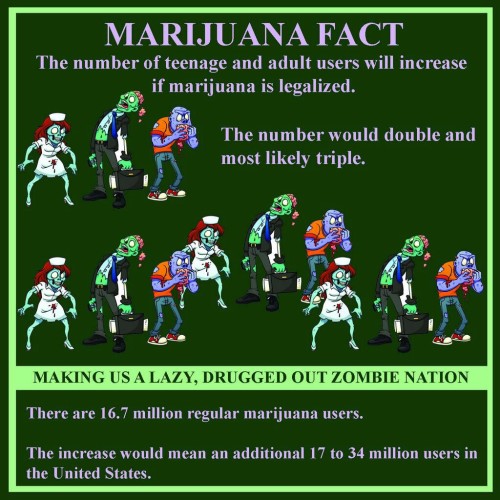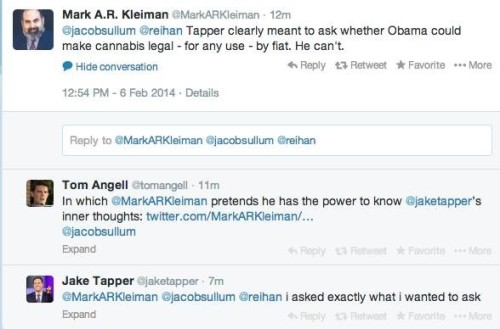I thought I’d share with you a post I made for my Facebook friends who generally aren’t as well-informed about drug policy as readers here. There had been so many posts regarding the death of Philip Seymour Hoffman that I felt it was important for them to hear a different perspective about heroin policy.
…
Free heroin. Â I’ve spent over a decade studying and writing about drug policy. My friends know this and sometimes one will come up to me and say “I know you think we should legalize and regulate drugs, and I’m with you when it comes to marijuana. But what would you do with a truly evil drug like heroin?” Â And I respond, “I’d have the government give it away for free.”
Yes, that does tend to elicit a shocked reaction, but let’s take a moment to look at our experience with drug policy.
The “just say no” and “drugs are bad, mkay?” approaches to drug policy (espoused by well-meaning, but clueless, outsiders) have little chance of affecting those most likely to become heroin addicts. And close to a century of experience with prohibition laws has proven conclusively that we cannot stop people from getting and using heroin (even in countries where drug trafficking gets the death penalty), plus prohibition itself adds additional harms in terms of uncertain dosage, contamination, criminal involvement, stigma, etc.
Yes, we can do some significant prevention by educating people with real facts about drugs and their effects, but we also need to understand reality. For example, consider that we could completely eliminate sexually transmitted diseases if we could just convince people not to have sex. That’s a fact. It’s also an impossible fantasy. Eliminating heroin use through prohibition laws and societal disapproval is also an impossible fantasy.
Once we accept that there will be a small percentage of the population who use (and perhaps abuse) heroin, the real question is what we can do to reduce the harm. Â In the U.S., we tend to focus on abstinence-based treatment programs (cold turkey quitting), often under stressful conditions (connected to arrest, job loss, etc.).
While it works effectively for some people, that approach has two problems. Â First, those who have tried to quite smoking know that the worst/hardest time to do it is when they are in a stressful life situation. Yet, heroin addicts are told to quit cold turkey when they’ve reached rock bottom (loss of job, family/children, career, freedom, etc.). Â This makes relapse more likely.
Second — and way too many people don’t know this: Â you are much more likely to die from a heroin overdose after abstaining for a period of time. That’s right, when you quit cold turkey, if you then relapse, your chances of dying increase. Treatment, bizarrely, often leads to heroin overdose deaths.
How is this possible? Â In a nutshell, it has to do with tolerance. Â When you start using heroin, your body develops tolerance — you need more to reach a target level of euphoria, but your body adjusts and can handle more. When you quit, your body’s tolerance goes back down, so if you re-start, the same heroin you could tolerate before will now stop your breathing. Studies have indicated that the majority of heroin overdose deaths occur after quitting for a time. That’s probably why you often hear in famous overdose cases that they had recently been in treatment. As an additional complication, those who relapse tend to do so in solitude (stigma/shame) and thus cannot be helped by the simple application of Naloxone, which, while painful, can reverse pretty much any heroin overdose without causing damage.
Despite all this, we rarely discuss whether our approach to heroin use (prohibition and cold-turkey treatment) is the only, or best, approach. There is a better option. Â (You were beginning to wonder when I was going to get around to talking about the government giving heroin away for free… here we go.)
I call it Heroin-Assisted Treatment (or HAT). The idea is that anyone using heroin could come to a government-run clinic and get a safe, controlled dose of heroin for free. The clinic would have medical staff and counselors to help people get their lives/jobs/families back into shape, if necessary, so they can maintain their habit without heroin disrupting their lives (and with controlled dosage, it’s possible to do pretty much anything as an addict that a non-addict can do). Once they’ve got their lives in order, they can work at reducing or completely quitting when ready.
I realize that it’s counter-intuitive and sounds completely bonkers. Free heroin? Ridiculous.
But this isn’t my idea. It’s actually been done. And we have clear evidence it works. While each program has had different details, there have been successful HAT programs in Canada, Germany, Spain, the Netherlands, Switzerland, and the UK, going all the way back to 1994 in Switzerland. And every study done of these programs have shown that they work. Massive reductions in crime, improved physical and mental health, excellent cost benefit to society, and greater longevity for those in the programs. Â And here’s the kicker — the existence of such programs takes away the profit potential for criminal heroin dealers, which actually can result in fewer people being exposed to heroin use.
So why don’t we have HAT here? (And why has HAT been under political attack in every country where it is successful?) Â Because many people don’t like it. Despite the facts, it is politically unpopular to “provide heroin to addicts” because it sounds like we’re encouraging drug use.
 It’s the same political calculation that promotes abstinence-only sex education under the sadomoralistic belief that it’s better for children to die of sexually transmitted diseases than give them a condom (which might encourage them to have sex).
We can continue a century of provably failed prohibition approaches and continue to watch people die, or consider alternative drug policies that have been proven successes. The question is whether we are willing to learn, and whether we care more about good policy than superficial appearances.





